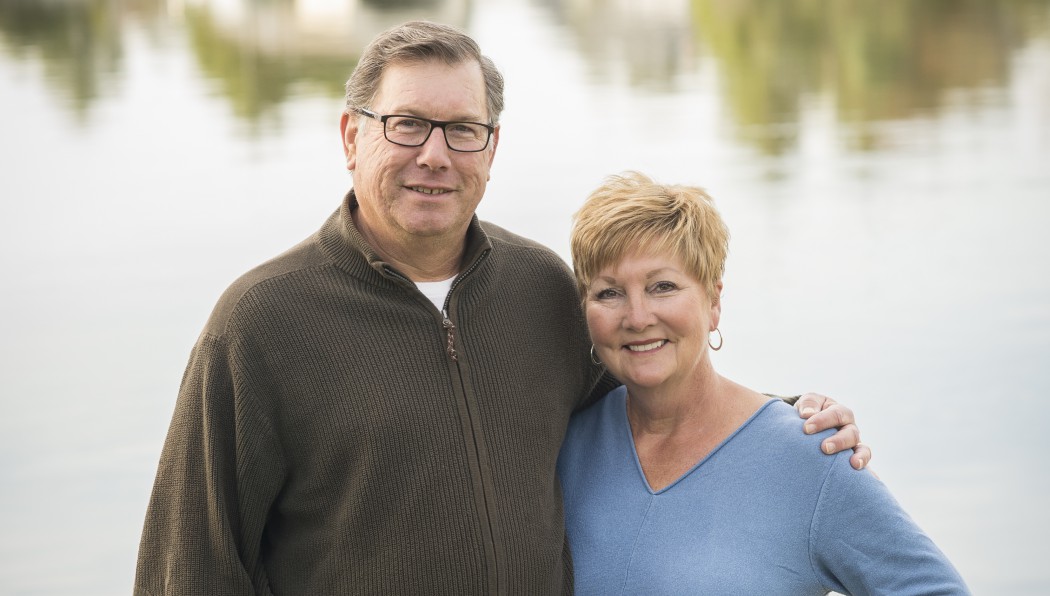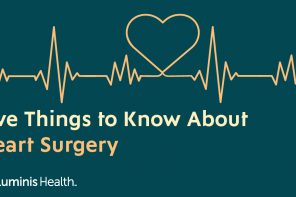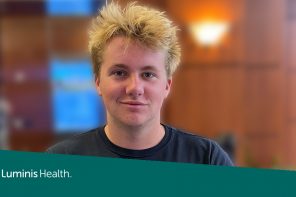Jeff Shields had been thinking and worrying about his heart for a long time. He knew he was a prime candidate for a heart attack. After all, he’s a type 2 diabetic, and his own father had died at 53 of a heart attack.
“I’ve been trying to do the right things ever since I was 50 and I’m 62 now,” Jeff says.
Still, despite his vigilance, when the heart attack arrived, Jeff barely recognized it.
It was the first day of summer, and Jeff had come inside to rest after working outdoors.
Heart Attack Symptoms Aren’t Always What You Think
“I had an odd feeling, like a baby bib was under my neck. I had just a little tingling in my right arm, but not painfully, and I had this tightness in the back of my upper jaw.”
These weren’t the symptoms for which Jeff had been on the lookout. They weren’t the symptoms he associated with a heart attack like arm and chest pain.
Luckily, he’s married to a retired nurse who’d worked at AAMC for 25 years.
“It was just so odd, so vague,” remembers Cathy Shields. “A lot of people would have ignored Jeff’s symptoms, and I could’ve maybe ignored them too, but because I’d been a nurse and well, the jaw pain, that was the deal breaker for me.”
Cathy called 911. It was a life-saving decision.
The ambulance paramedic confirmed that Jeff was having a heart attack and raced him to the emergency room at Anne Arundel Medical Center. Moments later, Jeff went into cardiac arrest. He received immediate defibrillation. Then he was rushed to the catheterization lab for an angioplasty. Marco Mejia, MD, an interventional cardiologist, used a balloon-tipped tube and wire-mesh stents to open Jeff’s blocked arteries.
“Dr. Mejia literally saved my life,” says Jeff. “I’m pretty grateful to him and the whole team as well.”
A Decade of Saving Lives
Dr. Mejia helped create AAMC’s Emergency Heart Attack Program more than a decade ago. He’s immensely proud of what they’ve achieved.
“Everyone knows their job, our team is set up and ready 24 hours a day, seven days a week. This program at AAMC is truly one of the best programs around.”
In addition to saving more than a thousand lives, the program has dramatically reduced coronary intervention response time, even beyond national guidelines. The American Heart Association recommends that it take no more than 90 minutes from the time a heart attack patient arrives at a hospital until a blocked artery is opened. At AAMC, 90% of all patients have their arteries opened in less than 60 minutes.
“The process is very refined now,” says Dr. Mejia.
Jeff Shields considers himself incredibly lucky for the life-saving care he received at AAMC and for having a wife that recognized his vague symptoms as those of a heart attack. Dr. Mejia says it’s a story worth heeding.
“We always want the community to know when you suspect heart attack you need to call ambulance right away.”
Cardiac Rehab Helps with Lifestyle Changes
As for Jeff Shields, his partnership with AAMC is still going strong. Following his emergency angioplasty, Jeff underwent successful quadruple bypass surgery. Once home, he enrolled in AAMC’s Cardiac Rehabilitation Program. It provides medically-supervised exercise, nutritional and behavioral counseling. Jeff also continues to see Dr. Mejia.
“He’s very stern, he tells me exactly what I’ve got to do. I just love him.”
As for Cathy, she offers this advice:
“Pay attention to the vague stuff, don’t overlook it, and be alert.”




